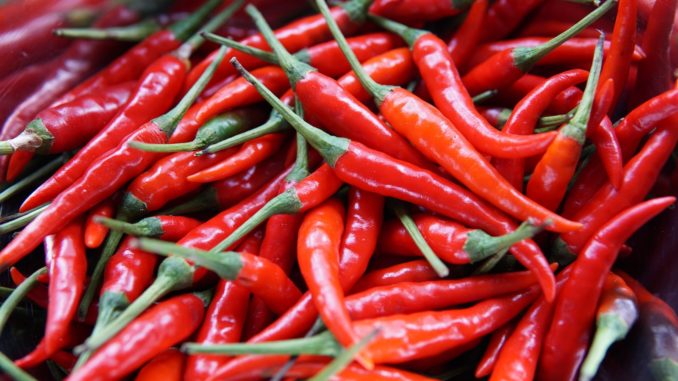
We all have our personal preferences when it comes to our favourite foods. Some of us enjoy sweet, whereas others prefer savoury. Then, of course, there’s the chilli heads amongst us. You know, those that just can’t get enough spice in their lives? Chilli peppers are enjoyed in a whole variety of different dishes, and they come in a number of different varieties. Chillies are about so much more than just heat, though. Chillies can lift a number of dishes and can be served in sweet and savoury meals. Chillies, though, are about much more than just pickled jalapenos served with nachos at the movies. If you’re a chilli fan, here are five spicy chilli facts to sink your teeth into.
There are thousands of different chillies
If we were to ask you to name as many chillies as you could, how many could you list? You’ve your tried and tested varieties such as jalapenos, scotch bonnets, birds eye chillies, etc, and your hot ones such as ghost and Naga chillies. Did you know, though, that there are literally thousands of different species of chilli pepper?
The conditions in which a chilli is grown in will impact its taste and appearance
Another thing to know about chillies is the fact that where they are grown will impact their appearance and taste. Everything from heat and humidity, to soil conditions and daylight will have an impact. When growing chillies yourself for example, if you don’t water the plants as much, they tend to produce peppers which are spicier, and vice versa.
Chillies were once used to pay taxes
It turns out that the pesky taxman wants his cut of everything, including your precious chillies. Once upon a time, many moons ago, chillies were actually used as tax payments for Ancient Aztec emperors. Specifically, the Chiltepin pepper was used, which is still very much around to this day. Nowadays, though, it is used primarily for culinary purposes, so we certainly don’t recommend that you try to pay your tax bill with it, or any other form of chilli pepper for that matter.
Not all animals feel the heat
If you were to bite into a Carolina Reaper chilli, your mouth and tongue would feel as if you’d drank molten lava due to the intense heat. The spiciness from chillies affects all mammals, yet some animals are immune to it. Feed a bird a Reaper, and it would eat it without a care in the world, as the heat does not affect them. One reason why many chillies grow in the wild is because birds eat the peppers, and then poop out the seeds at a later date.
Chillies get their heat from capsaicin
Chillies get their heat from a naturally-occurring compound known as capsaicin. It is capsaicin that gives the chillies their heat. Some contain more than others. Contrary to popular belief, the majority of capsaicin is actually contained in the flesh of the fruits, and not in the seeds, so chillies will still be spicy, even if you remove the seeds.


